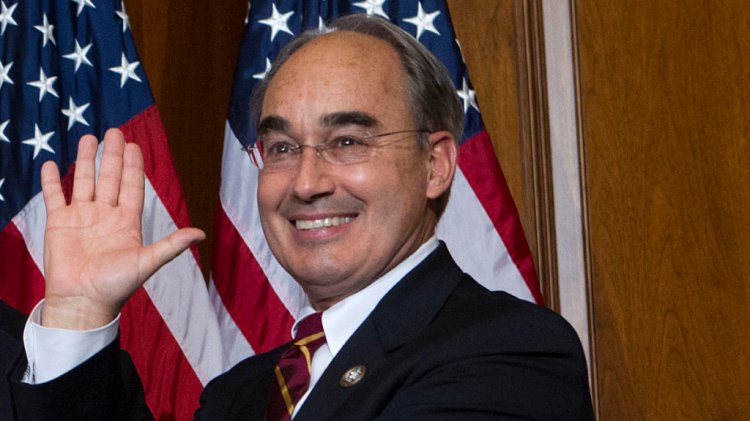After his unsuccessful bid to retain his 2nd District congressional seat, former U.S. Rep. Bruce Poliquin’s campaign has just $3,593 in its coffers and an unpaid debt to the candidate of $36,400.
In short, after losing a multi-million dollar race last year to Lewiston Democrat Jared Golden, Poliquin’s campaign owes more than it has in the bank, a scenario that makes a rematch in 2020 appear both less likely and more difficult than many insiders anticipated.
If he wants to run again, Poliquin will start off in a financial hole.
One reason he’s out of money is that he dipped into the campaign’s leftover cash last month to repay $100,000 that he owed himself for a no-interest loan he made to the campaign committee back in 2014.
During his initial campaign for a Maine congressional seat in 2014, Republican Bruce Poliquin loaned $213,500 of his own money to the campaign.
It’s a fairly common practice among politicians with enough personal wealth to finance some or all of their campaigns. Poliquin’s financial disclosure forms filed with the U.S. House show he likely had about $12 million in assets during the time he served in Congress, the fruits of a long career in business before he got into politics a decade ago.
What’s interesting about Poliquin’s loan is that he only made a serious effort to repay it from campaign funds within the past year — and the biggest repayment occurred last month when he reached into his campaign coffers for the return of $100,000.

Representative-elect says the delay in certifying his victory has made a smooth transition into office difficult.
Poliquin has not responded to requests for comment about his campaign or his plans since he agreed on Dec. 24 to drop his challenge to Golden’s victory.
There’s nothing improper about anything Poliquin did with his loans or his campaign cash. All of the details are laid out in his regular filings with Federal Election Commission, which are available online to anyone who wants to see them.
Winners often pay themselves back with the proceeds that pour in from political action committees and others.
Losers typically pay themselves back with what they can from any leftover campaign cash and write off the rest.
Campaign cash is something separate from a candidate’s personal wealth. There are rules about how it can be spent and no way to transfer the money to personal accounts except for services rendered or to repay loans, which are specifically noted on federal campaign finance filings.
The first loan Poliquin made to his campaign occurred June 9, 2014, the day before a congressional primary the former state treasurer won in his quest to claim the open 2nd District seat that Democratic incumbent Mike Michaud had opted to leave.
After winning the primary, Poliquin loaned his campaign another $200,000 on Sept. 30, 2014, a fraction of what his race cost but enough to pay for quite a few television commercials in the tight race he faced against Democrat Emily Cain.
Even before he emerged as its ultimate winner, Poliquin repaid himself $9,500 on Nov. 1, 2014, reducing his overall campaign debt to himself to $204,000.
He didn’t repay himself again until Dec. 10, 2015, more than a year later. He collected another $4,000 so that he had $200,000 left to recover.
After defeating Cain in a 2016 rematch, Poliquin repaid himself another $9,000 in late 2016 and then a further $4,600 on March 9, 2017.
At that point, his campaign account owed him $186,400.
As Poliquin headed into his second reelection campaign in 2018 — one he would eventually lose to Golden — he repaid himself $50,000 on Feb. 7, the biggest loan repayment he had made since giving his campaign the money in 2014.
While he was still battling Golden in federal court over the ranked-choice voting outcome of the race, Poliquin opted to repay himself another $100,000 on Dec. 12.
That leaves another $36,400 to collect from campaign coffers that are nearly drained.
It would have a little bit more, though, if Poliquin’s campaign hadn’t made a $5,000 donation on New Year’s Eve to the Christian Civic League of Maine.
The civic league, formed in 1897, aims “to bring a Biblical perspective to public policy issues that impact the family and equip citizens to be voices of persuasion on behalf of traditional family values in their localities.”
Golden, who didn’t loan any money to his campaign, had more than $80,000 in his campaign coffers at the end of 2018,FEC records show. He is continuing to raise more in preparation for what Democrats expect to be a tough reelection fight in 2020.
Send questions/comments to the editors.




Comments are no longer available on this story